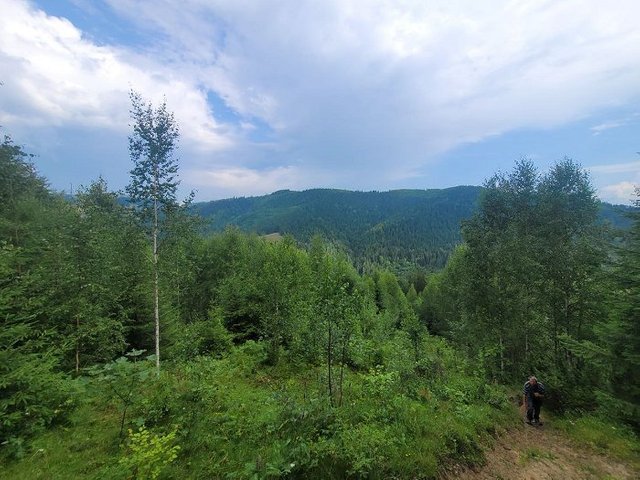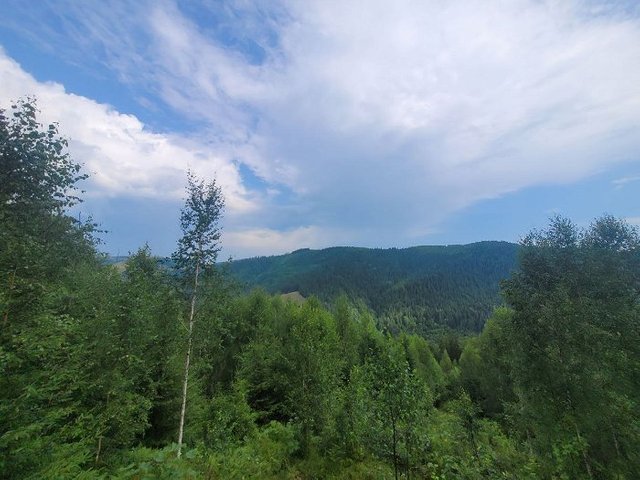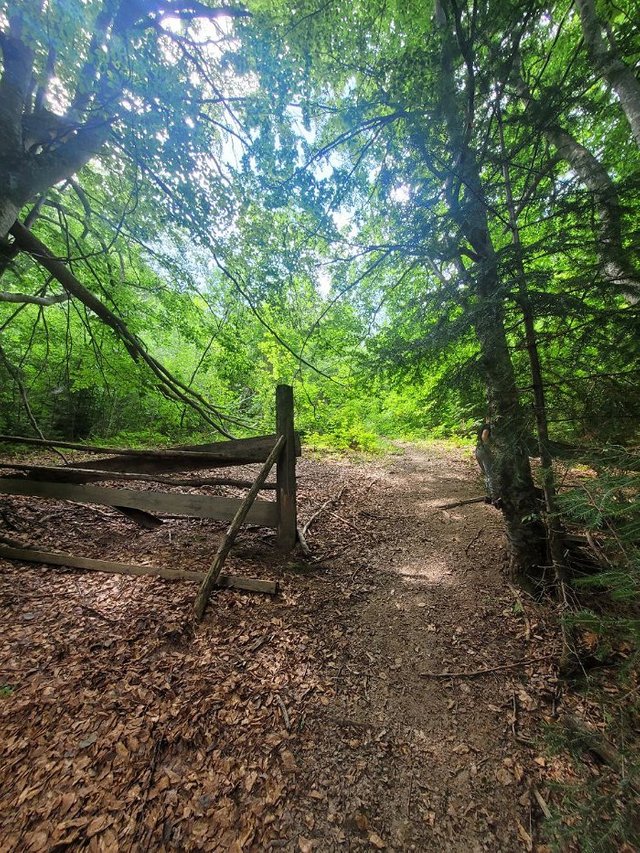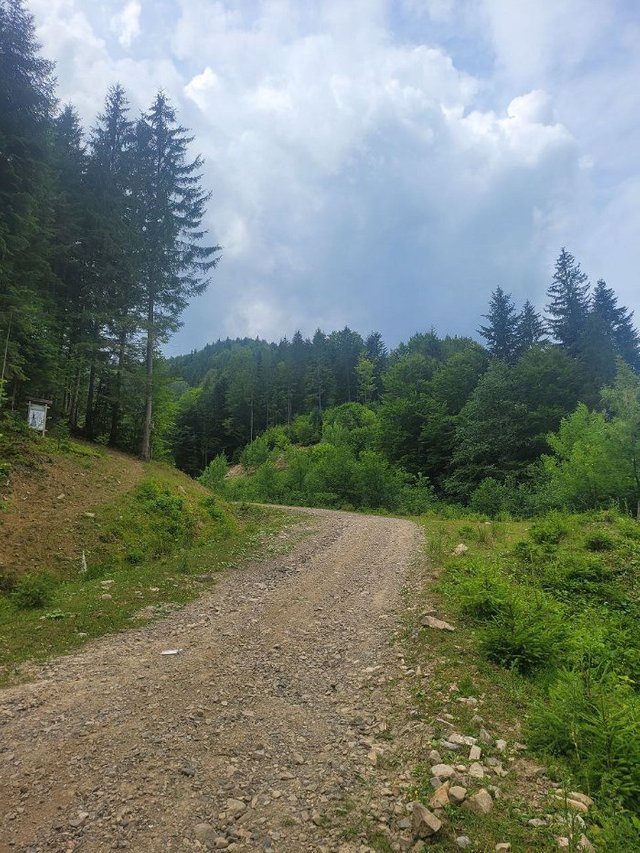Last year I traveled a lot in the Carpathians. Once I met friends, in whose company there was a guy who had traveled in the Alps before. During the day he often said "No worse than in the Alps", "Even better than in the Alps". I liked this idea, although I have not been to the Alps, and I will not have to visit soon (perhaps never), but Carpathians are wonderful, and we should value what we have here in Ukraine. Much later, I came across a literary explanation of the difference between the Alps and the Carpathians in the story "Opryshok" by Leopold von Sacher-Masoch (Ukrainian edition can be found in the collection "Traveling Comedians" - Folio, 2020). So, the given description is from this story, which I recommend reading if you like literature.

Leopold von Sacher-Masoch and his company are traveling through the Carpathians, and it is an interesting coincidence that he is traveling in the same area where I have been. "Suddenly, the green curtain opened, and in front of us lay the long Hutsul village of Hryniava, divided by a silver ribbon of a stream." It was near Hrynyava that I went up into the mountains to look at the option of a house and a plot of land for sale, in order to start building a library in the mountains and a crypto-hub there. A wonderful place, it is far from civilization and needs a lot of resources to invest in infrastructure. But these photos from the area around Hrynyava will supplement this text. ("The mountain Lambo" story is from that trip)

A heavy, bitter spirit constricted our chest, a deep cold shadow and dampness enveloped us. Menacingly protruding from the patches of fog were bare gray rocks, purpled by the sunrise, as if engulfed in flames. The invisible mountain streams sang monotonously and sadly, and the woodpecker tapped monotonously with his beak on the tree, in that eerie knocking one could learn the swinging of a hammer used to drive nails into a house...

Then, the author writes about the Alps. Merano is a town in Tyrol (now Italy), where, famous poet Ezra Pound lived his last years, and where the castle (which belonged to his son-in-law) is located on Ezra Pound street. I planned to visit the Ezra Pound Literary Center someday.
A winter morning in Merano is incomparably friendlier. A mountain pit, valleys filled with pink light, green-crimson forests rise up the slopes, on which here and there you can see huts decorated with fine carvings. The sharp-topped mountains, wrapped in white snow that festively shimmers in the sun, clearly stand out against the background of the blue, cloudless, transparent sky. The sun shines powerfully and kindly. Small titmice with shiny nipples are restlessly fussing on the dark green branches of trees above the shore, whistling something to themselves. Here and there warm golden rays lure a green lizard into the world of God; it climbs on a stone and warms itself, cautiously raising her head. A finch sings in thickets of laurel and ivy. The windows of the houses refract the sun's rays like magnifying glasses. Pearls of meltwater sparkle everywhere. Single drops of ice hang from the tips of the grass along the stream, sway and sparkle like diamonds. Everything seems to be created to cheer the human heart.
If in the Alps, even with all their impregnability and power, gaiety, friendliness and peace reign over all the peaks and valleys, then our Carpathians, like our people, are characterized by a deep, silent and inexpressible longing, a certain wildness, ancient pagan majesty; their gloomy majesty seems to try to oppress and crush us, only to lift us with even greater force above the heavy, suffocating earth.
And here the author is talking about the Carpathians again:
In the age-old primeval forest that surrounds us on all sides, virgin nature reigns.

Wide branches, thick leaves of ancient beeches, and giant oaks intertwined, forming a gigantic vault; penetrated by the sun's rays, it, like a precious vault of palaces from Arabian fairy tales, shimmers with green emerald, trembles with a dull mysterious noise, as if from the sounds of an organ.

Between the brown trunks, which look like mighty blocks of granite, there is a mullet, smooth as a handkerchief. The further we went, the higher, more colorful and more fabulous the unknown flowers, herbs and bushes stood out from the grass. Hazelnuts, raspberries and blackberries waved their green hands at us like good friends from the barely audible morning light. Large butterflies flapped their wings in the air, as if embroidered with oriental patterns. The sun dragged its tight golden-green web over grasses, berries, poisonous red lichens; its radiance streamed down the trunks, and cast brilliant drops on the wide bowls of ferns and moss, between which the wide, gnarled, wrinkled roots of the trees were tortuously interwoven.
